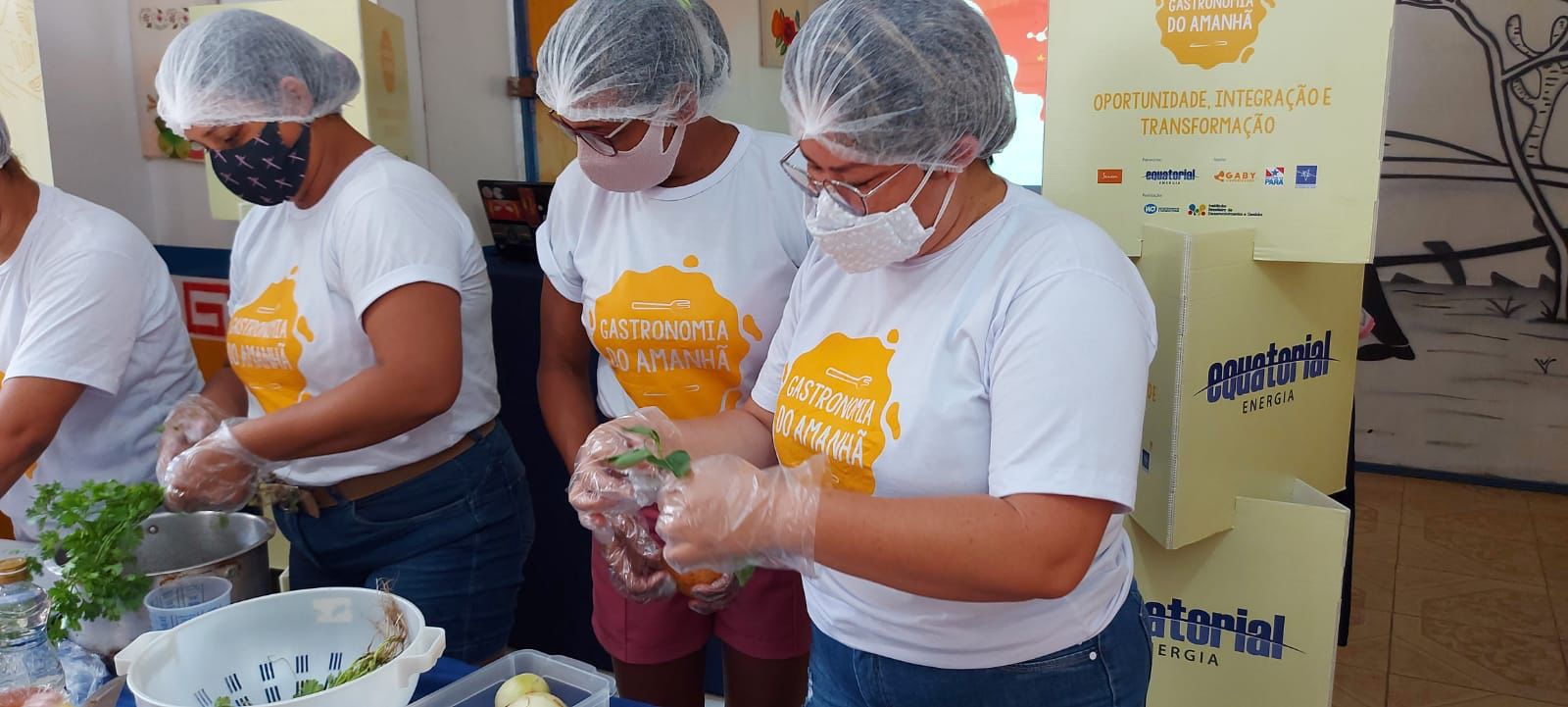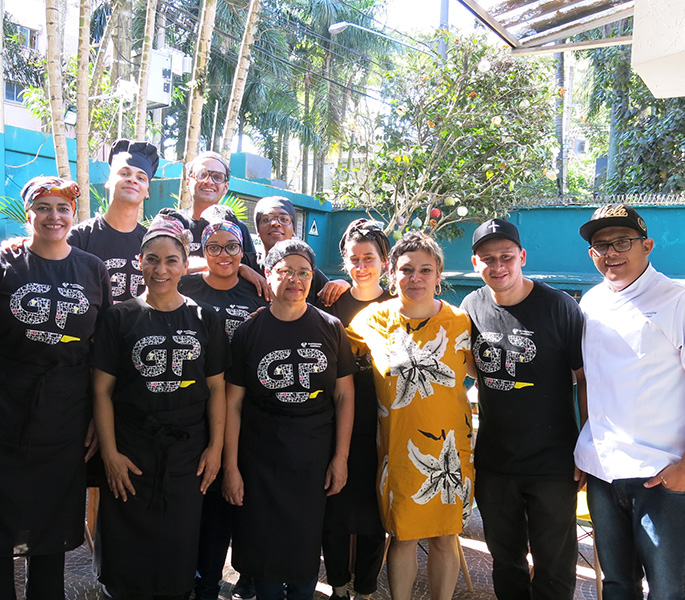Gastronomy as a path: from Pará to São Paulo
Social projects in peripheries in the north and southeast regions of the country train young people and the population in general in the field of gastronomy.


Credits: Disclosure
By: Renato Silva / Lupa do Bem – Favela em Pauta
The publication about Diamantes na Cozinha, a project carried out on the outskirts of Rio de Janeiro, motivated us to look for equally powerful stories and projects spread across Brazil, which make a difference and open up opportunities and possibilities.
One factor unites a large part of the social projects in this field: the periphery. The slums, interiors of states or municipalities and neighborhoods on the metropolitan periphery are the cradles of these projects and their founders.
One of the examples comes from the north of the country, in Pará: the Gastronomy of Tomorrow project. The program, which professionalizes and trains people in situations of social vulnerability with practical workshops on the market and kitchen, recently ended a cycle that covered 18 municipalities in the state.

The cycle schedule includes workshops, which include theoretical and practical classes. On the last day, the result of this entire process is shared with the public in a gastronomic show, with the delivery of certificates.
According to Michelle Miranda, social responsibility analyst at Grupo Equatorial Energia, the company sponsoring the project, Gastronomia do Amanhã focuses on transforming realities.
“[The project] has a positive impact on everyone who participates. It is an action that gives people the opportunity to transform their lives through a project that generates income, autonomy and financial independence”, she reports.
In addition to Belém, the action also passed through cities such as Santarém, Marabá, Baião, Capanema, Altamira, among others. The project cycle is still ongoing and runs until October 29.
Chef Verena Aquino, the project’s technical coordinator, says that even with the experience gained throughout her profession, working with Gastronomia do Amanhã is a unique feeling and that the entire learning process is organized so that students feel safe and motivated to continue cooking after finishing the course.
“We seek to understand the reality of the places and people who go in search of enrollment in the project. The language and classes are appropriate to what participants encounter daily. Thus, they identify themselves and can put what they learn into practice. At the end of the course, we already had cases of women who set up their restaurants and now have their own income”, says Verena.
Registrations
Applications for the project are carried out according to the action at each location. The 40 vacancies must be filled through a form that will be available in an environment of easy circulation in the municipality, such as, for example, in community centers. For this, the tip is to follow everything through the Gastronomia do Amanhã profile on social networks.
Professional and free gastronomy education for the periphery in SP
This is how the Peripheral Gastronomy project is presented, a social business that mixes in the recipe: technical and human development for the gastronomy area, which raises awareness about the total use of food, opens possibilities to learn, undertake and be a protagonist in the market from the periphery.
The Peripheral School of Gastronomy was born by chef Edson Leite and the psychologist Adélia Rodrigues, with the motivation of training kitchen professionals suitable for the market and in the social sphere, offering alternatives for their personal and collective realities.
One of the objectives of the project is also to minimize aspects of violence, criminality and exclusion, through professional training.


The manager and founder of Gastronomia Periférica, chef Edson Leite, believes in the importance of training professionals before launching them on the market without knowing what gastronomy is and everything that involves it. “We need to train because the workforce is peripheral in most restaurants, hospitals, the entire food court. So, we use gastronomy as a tool for social transformation, through cooking, training, generating opportunities including in the area of entrepreneurship with food”, he says.
The School, which is already recognized and awarded, has a fully online distance learning system, making it possible to broaden horizons. Thus, people from all over Brazil can have access to the courses offered.
The course is completely free. The student selected can receive all the supplies to cook and to do the subjects, and even the access to the internet to attend classes.
Gastronomia Periférica is a project maintained 100% through donations. All students study for free, and those selected to attend the school are people who live on the periphery, and who would not have access to this type of education and quality teaching.
Another interesting aspect of the project is the Gastronomia Periférica app, an app dubbed “iFood from the outskirt”, which maps the gastronomic entrepreneurs in São Paulo who are closest to the consumer and where, generally, no other app reaches.
For Edson, the most important thing is that the periphery is ahead of its future, learning, forming and multiplying knowledge in the hood. “I think it’s very important that we do things from our perspective, you know?”.
“It was necessary to have an architecture school in each outskirt. You see how a shack is built in the periphery. Imagine these guys having the right training to do that. Empower these people from where they come from, not take them away from that place, so that they suffer ten, twenty times more on public transport, get tired more. Since they are there, we are going to take this training there”, he reflects.


